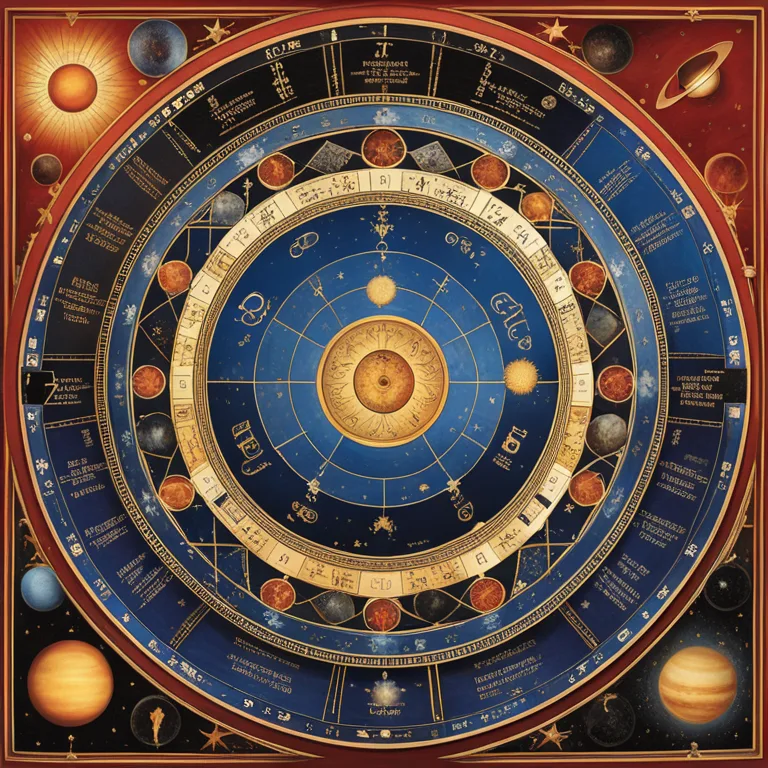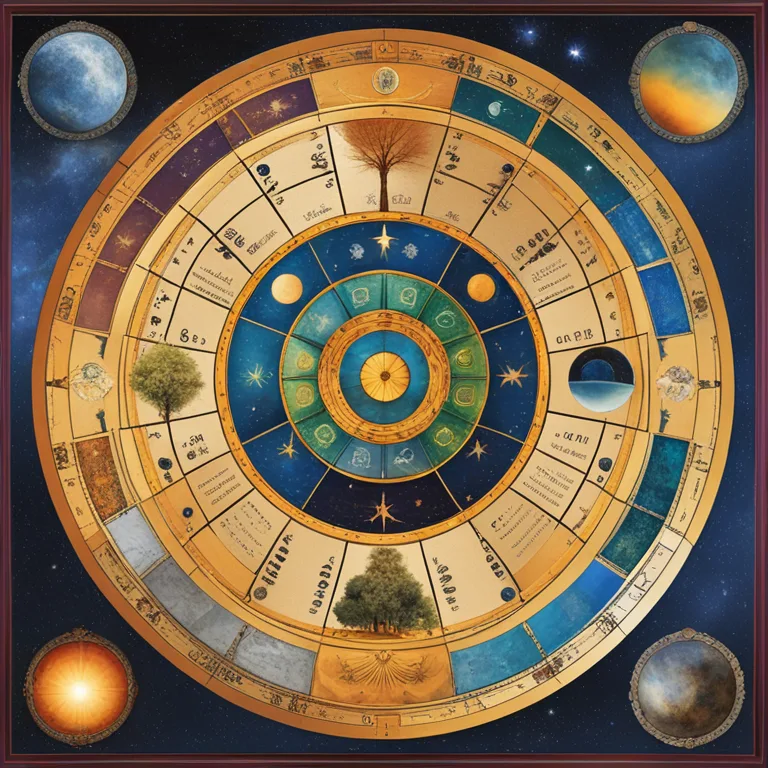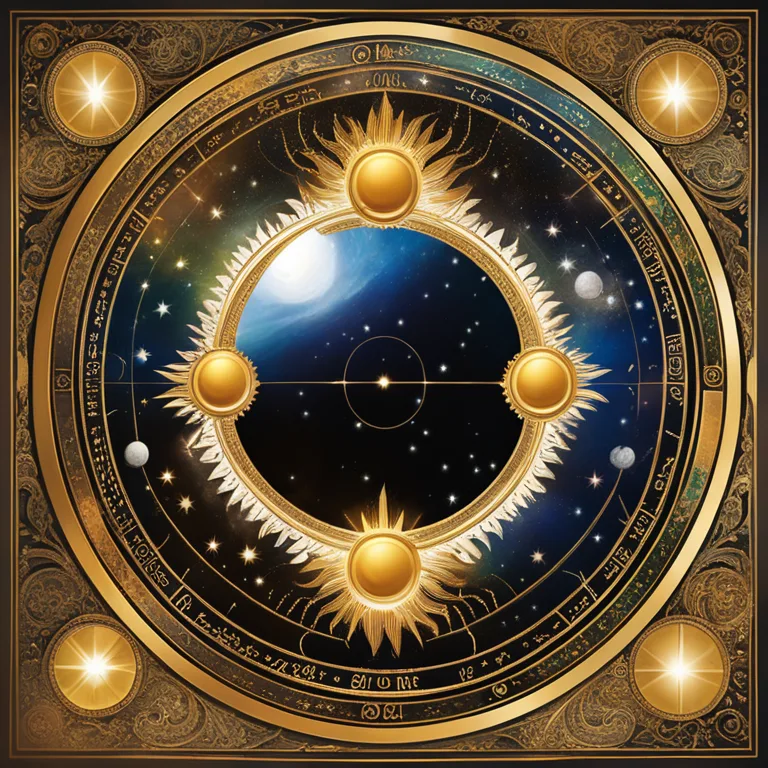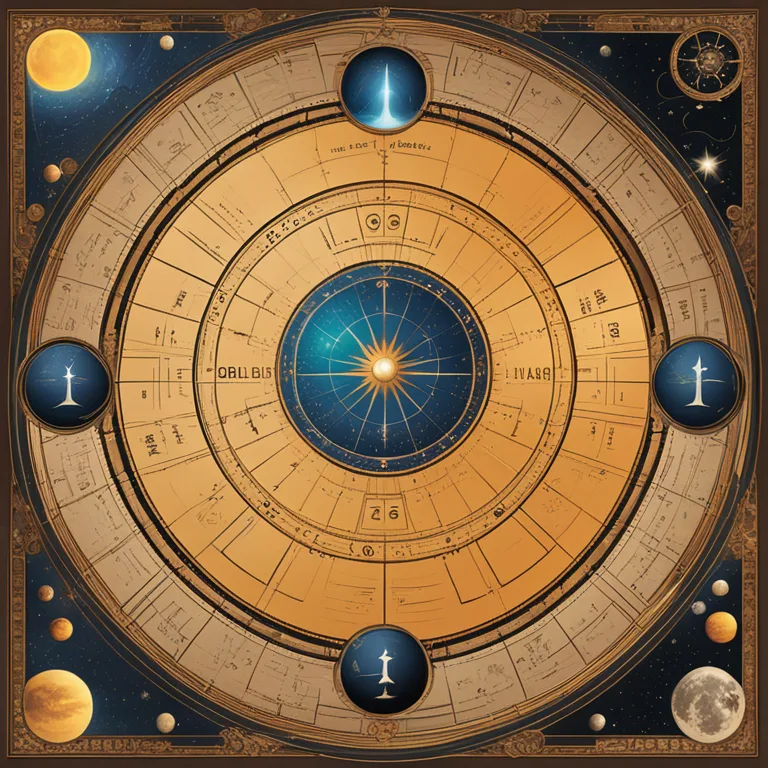
Interpreting Your Birth Chart: A Beginner's Guide
The basics of reading a birth chart distilled into simple steps. Discover your astrological blueprint and what the stars hold for you.
article by Priya Deshmukh
Introduction to Birth Charts
For centuries, astrology has provided insight into our personalities, potential paths, and life events, with the birth chart being a central tool for such exploration. A birth chart, also known as a natal chart, is a snapshot of the sky at your exact moment of birth. This personalized map reveals the locations of the planets and other celestial bodies, all of which influence various aspects of your life. Reading your birth chart can offer profound insights into your personal identity, challenges, strengths, and future possibilities.

The Components of a Birth Chart
To begin reading your birth chart, understand its primary components: planets, signs, houses, and aspects. The planets represent various parts of the psyche; for example, the Moon reflects emotions, while Mercury governs communication. The twelve zodiac signs these planets are in illustrate their expression—Aries exudes boldness, whereas Pisces embodies sensitivity. The twelve houses denote life areas, like career or relationships, and the aspects describe the angles planets make to each other, indicating the harmony or tension between different parts of your life.

Locating the Planets and Signs
Start with the 'big three'—your Sun, Moon, and Ascendant. Your Sun sign is your fundamental essence, the Moon sign rules emotions, and the Ascendant, or rising sign, represents your outward personality. Locate these in your chart by finding the corresponding symbols: a circle with a dot for the Sun, a crescent for the Moon, and an ascending diagonal line for the Ascendant. The surrounding glyph indicates the zodiac sign each is in, informing you about their qualitative flavor.

Understanding the Houses
The birth chart is divided into twelve houses, each an arena of life. For example, the first house is about self-identity, while the seventh concerns partnerships. Observe which planets reside in each house of your chart. A crowded seventh house might suggest an upcoming focus on relationships in 2024, while planets in the tenth could point to professional achievements. The house a planet occupies reveals where in life you'll most likely experience its influences.

Aspects and Their Meaning
Aspects are significant in forecasting how planetary energies will interact. Conjunctions (planets in the same sign) can intensify energies, while squares (90-degree angles between planets) could represent challenges. Trines (120 degrees) indicate flow and ease. For predictions beyond 2024, a look at upcoming transits—where planets will move in the future—against your birth chart's aspects can provide a glimpse into upcoming trends or shifts in different life areas.
Integration for Personal Growth
Reading your birth chart can be like assembling a cosmic jigsaw. The placements offer a narrative of potential traits and circumstances, and how they might unfold over time. As you enter 2024 and beyond, consider the evolutionary opportunities your chart presents. Personal growth is more accessible when you understand the astrological energies at play. The dynamic dance of the planets continues to unfold, and your birth chart serves as a personalized guide through the cosmic landscape.
Published: 12/27/2023
Modified: 12/28/2023
More predictions
Come back here soon to learn more about yourself and your future


The Value of Your Birth Chart Circle
Delve into the mysteries of your birth chart circle and learn how the heavens at your birth moment influence your life path.


Scorpio's Birth Chart Insights
Delve into the intricate celestial blueprint of a Scorpio. This article offers a detailed guide to understanding a Scorpio's birth chart and astrological influences.


Birth Charts Unravelled: Beginner's Guide
Delve into the basics of birth chart analysis and its significance in personal astrology with this beginner-friendly guide.